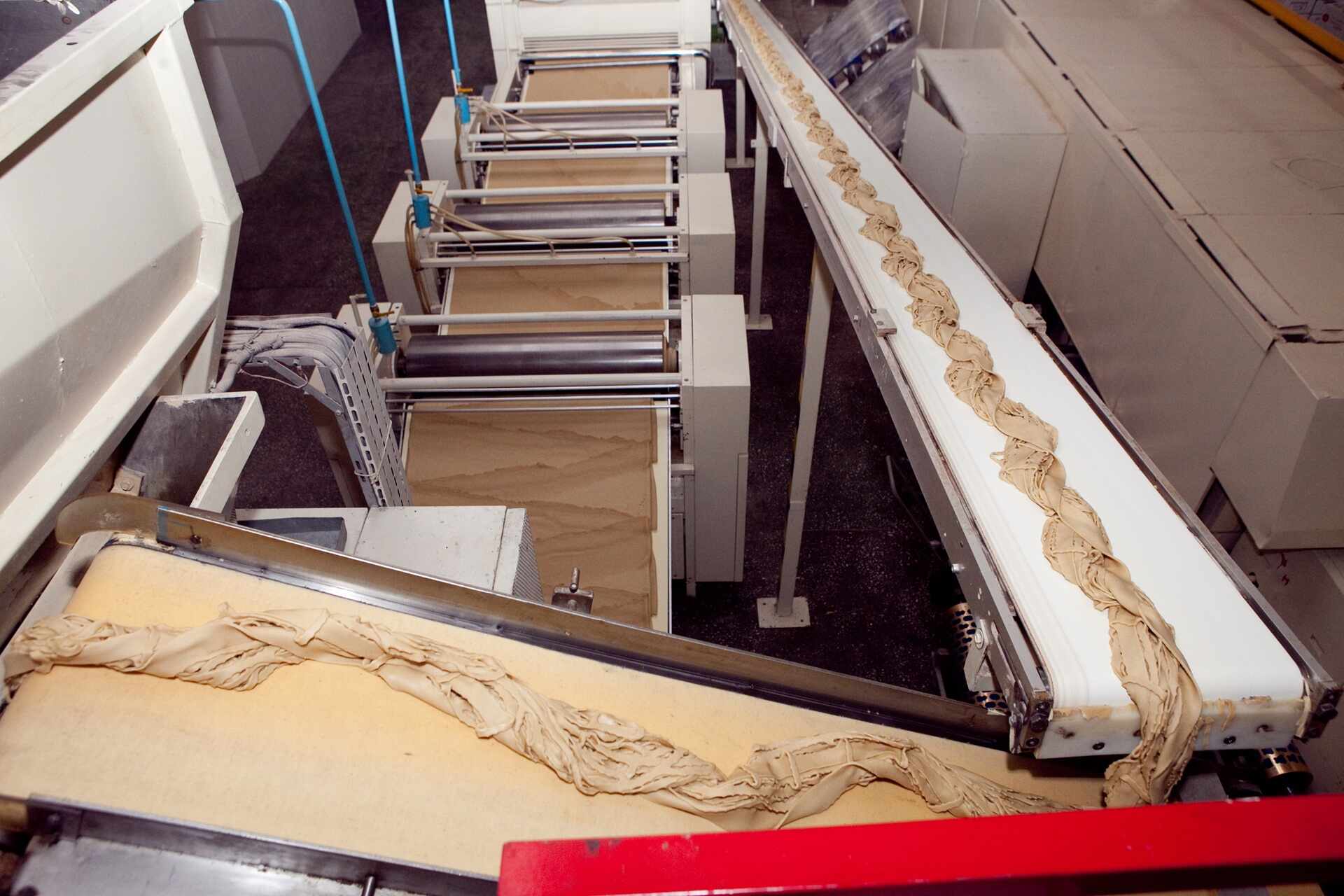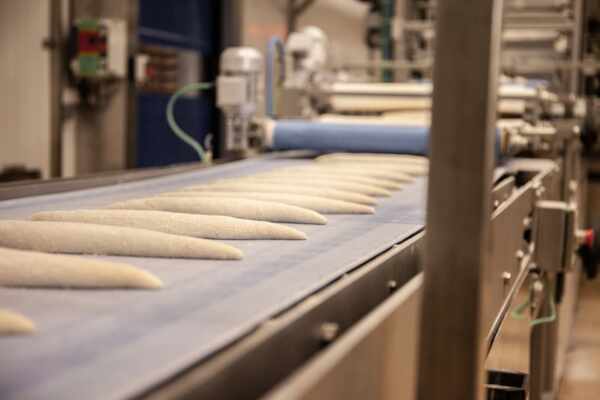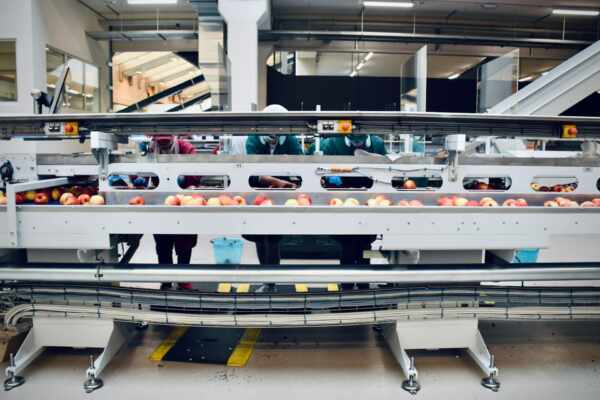As a vital component of countless industries, conveyor belts have transformed the way businesses function, offering efficient, and effective solutions for transport and handling of products. The food manufacturing sector, in particular, has greatly benefited from advancements in conveyor belt technology, ensuring maximum productivity whilst adhering to strict hygiene standards.
In this article, we will delve into the world of conveyor belts tailored specifically for food manufacturing processes, discussing the optimal belt types, their benefits, and how to maintain these belts for consistent performance and cleanliness.
When it comes to food manufacturing, it is imperative to employ a conveyor belt system that caters to essential industry requirements, such as compliance with food safety regulations, ease of cleaning, and the ability to handle various food products. Different conveyor belt types provide specific advantages for food production lines, including stainless steel belts, plastic belts, and custom combinations that integrate additional features or materials.
Choosing the right conveyor belt system for your food manufacturing process hinges on a thorough understanding of your operations, products, and potential challenges regarding hygiene or handling. Whether you are dealing with baked goods, dairy products, or ready-to-eat meals, the appropriate conveyor belt system can make all the difference in streamlining your production line, boosting efficiency, and ensuring product quality.
In addition to exploring various conveyor belt types, we will also share essential maintenance guidelines for keeping your food manufacturing conveyor belt system in top shape. With optimal belt performance and hygiene as top priorities, adherence to these maintenance practices will extend the life of your conveyor belt system and maintain the high food safety standards necessary for your industry.
Selecting the Ideal Conveyor Belt Types for Food Manufacturing
Stainless Steel Conveyor Belts
Stainless steel conveyor belts are a popular choice in the food manufacturing industry due to their durability, hygiene, and resistance to corrosion. These belts are well-suited for handling a variety of food products, from baked goods to fresh produce, ensuring the utmost cleanliness and efficiency in your production line.
Plastic Conveyor Belts
Plastic conveyor belts offer a versatile and cost-effective solution for food manufacturing applications. Made from food-grade polymers, these belts provide easy cleaning and maintenance while resisting bacterial growth. Their lightweight construction and customisable design allow for seamless integration into various food production lines, handling products such as confections, frozen foods, and snack items.
Modular Conveyor Belts
Modular conveyor belts are a perfect fit for the diverse needs of food manufacturing processes, as they combine the benefits of stainless steel and plastic conveyor belts. These belts feature interlocking segments, making them highly customisable and adaptable to various production configurations. Additionally, modular conveyor belts enable easy repair and replacement of damaged or worn-out sections, minimising downtime and maintaining efficiency.
Specialty Conveyor Belts
Depending on your specific food manufacturing requirements, you may opt for specialty conveyor belts infused with additional features or materials. Examples include belts with cleats, non-stick surfaces, and antimicrobial coatings. These customised solutions help address unique handling or hygiene challenges, further optimising your production line.
Key Benefits of Tailored Conveyor Belt Systems in Food Manufacturing
Compliance with Food Safety Regulations
One of the primary advantages of selecting the ideal conveyor belt system for your food manufacturing process is compliance with stringent food safety regulations. By using belts made from food-grade materials and featuring easy-to-clean designs, you can ensure that your conveyor system adheres to the necessary hygiene standards.
Optimal Handling and Transport of Food Products
The right conveyor belt system will effectively and efficiently handle and transport an extensive range of food products. Be it raw ingredients or finished goods, a tailored conveyor belt solution will promote streamlined processing while minimising the risk of product damage or contamination.
Increased Efficiency and Productivity
By choosing a conveyor belt system that aligns with your food manufacturing requirements, you will enjoy increased efficiency and productivity. Whether you are dealing with high volumes of perishable items, delicate baked goods, or confections that require precision handling, a tailored conveyor belt solution will contribute to a smoother, more effective production line.
Boosted Return on Investment (ROI)
Investing in an optimally designed conveyor belt system for your food manufacturing process will yield a boosted ROI. Not only will your selected belt enhance your overall efficiency and production quality, but correct maintenance and cleaning practices will ensure extended system life and prevent costly downtime or repairs.
Maintaining Your Food Manufacturing Conveyor Belt System
Scheduled Cleaning and Sanitation
Regular cleaning and sanitation schedules are essential for maintaining the hygiene of your food manufacturing conveyor belt system. Adhere to manufacturer guidelines for cleaning frequency, methods, and approved cleaning solutions and equipment.
Routine Inspections
Conduct routine visual inspections of your conveyor belt system to identify potential issues, wear, or damages. Address any concerns promptly, as the timely resolution of problems is key to preventing unnecessary downtime or more severe system breakdowns.
Alignment and Tension Monitoring
Keep an eye on the alignment and tension of your conveyor belt to ensure optimal performance and minimise potential issues. Misalignment or incorrect tension can lead to uneven wear or premature system failure. Regularly adjust the belt based on manufacturer recommendations.
Lubrication and Component Care
Bearings, rollers, and other moving parts require periodic lubrication and maintenance to ensure smooth and efficient operation. Following manufacturer guidelines for lubrication and component care will maintain peak performance and extend the life of your conveyor belt system.
Conclusion:
Incorporating the perfect conveyor belt solution for your food manufacturing process can revolutionise your operations, boosting efficiency, complying with food safety regulations, and ensuring product quality. By understanding the different conveyor belt types and their benefits, you can make an informed decision on the ideal solution for your specific needs, further augmented by proper system maintenance and care.
Embarking on a journey to optimise your food manufacturing process starts with choosing a reliable and top-quality conveyor belt system that meets your unique requirements. Maintain system performance and hygiene with expert maintenance tips, and unlock the potential of a highly efficient, safe, and productive food production line.
Upgrade your industrial operations with the finest conveyor belts in the market. Get in touch with Change Parts Pty Ltd today and revolutionize the way you move materials and products! Trust us to provide you with the most reliable conveyor belt solutions, tailored to your unique requirements!




